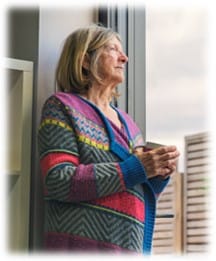Models of Work – Supporting better physical health in our services
When staff and volunteers at Together work alongside a person using any of our services, they prioritise the individual’s lived experience when considering all the elements that can impact their wellbeing. Their physical health can be a crucial part of this. Our ethos of Service User Leadership means we are person-centred in our approach to support and will always help a person engage with services that can aid their physical health. Helping them access health check-ups can be an important part of this approach, as well as providing links to activities that can help with their physical wellbeing.

Physical health support is often provided by GPs and so a lot of the work Together staff and volunteers do in this area involves ensuring people have suitable connections with primary care and are engaged with the services available to them. If a person has had a previous negative experience whilst engaging with health services, it can impact the levels of trust they have when seeing a medical professional and so having a Together staff member or volunteer involved as a third party with whom they have a pre-existing relationship, can be beneficial. Physical health appointments can also be very personal and so being supported to just attend appointments can be valuable.
The people we work alongside can at times, benefit from logistical support to reach a GP’s surgery, or to make a dentist’s appointment for example, so Together staff will often support with practical things like arranging a taxi services. Staff are also on hand to provide reminders so appointments aren’t missed and can offer emotional support to the people using our services if the prospect of a health appointment is impacting their mental wellbeing. Together staff can also help individuals they work alongside to book health appointments by bypassing booking systems and queues and contacting the surgeries directly. Our staff take time to build relationships with GP surgeries in this way, to ensure referrals can be made more efficiently.



In addition to supporting with general health checks, staff at Together will work with, and refer people who use Together services to more specialist care, e.g. smoking cessation, sexual health etc. Together staff also work collaboratively with Social Prescribers and local mental health teams to support referrals to activity-based services such as sports clubs, walking, gardening and befriending projects. Our staff will support the individual accessing the service to share their lived experience to help inform the support they receive.
Together’s accommodation services develop long term relationships with residents and have established links to physical health support in their local areas. Our advocacy teams ensure the people they work alongside have a voice when they engage with health services, even in secure settings. In our criminal justice services, our staff look to engage with any health concerns as a person goes through the system and will make links for them when they are on probation. Our community support services have established relationships in the communities they operate in and work closely with healthcare infrastructure to support its development.
Below are examples of how specific services at Together provide support to people around their physical health.
Specialist Tobacco Cessation for Severe Mental Illness (SMI)
The Smokefree Norfolk Enhanced Service for Severe Mental Illness (SMI) is run in partnership with Together for Mental Wellbeing and Reed Wellbeing and supports people who experience complex mental distress to quit smoking. The service works with all Primary Care Networks (PCNs) across the county of Norfolk. SMI includes schizophrenia, bipolar disorder, other psychoses and severe depressive disorders. People who experience these difficulties are often heavy smokers.
Tobacco smoking has a big impact on physical wellbeing and is a leading reason that people with SMI have a 10-25 year lower life expectancy when compared to the general population. There is extensive high-quality evidence for smoking cessation interventions including pharmacotherapy alone or in combination with behavioural support or e-cigarettes for the general population. Research has demonstrated that quitting smoking can improve mental health symptoms but that people with SMI may need extra support to quit, perhaps because they experience multiple additional barriers.
The local PCNs determine the areas in which support will be provided, with a particular focus on places with high levels of neighbourhood deprivation and a high prevalence of people with an SMI diagnosis who smoke. The service meets the needs of people with SMI who smoke by running pre-quit support sessions, providing people with the option of cutting down rather than quitting, and offering home visits. The service can also provide access to Nicotine Replacement Therapy and/or Vape kits depending on the need of the individual to help them manage their nicotine cravings and withdrawals.
Feedback from people who used the Norfolk Smoking Cessation in Severe Mental Illness Service
Peter’s Story
 “I have saved money and found that I am more productive and started to feel healthier. Using the Nicotine Replacement Therapy worked for me. I’d tell other smokers with a Severe Mental Illness, you should go for it. I never thought I could and I did it, especially with the help of the Smokefree Norfolk Enhanced service.”
“I have saved money and found that I am more productive and started to feel healthier. Using the Nicotine Replacement Therapy worked for me. I’d tell other smokers with a Severe Mental Illness, you should go for it. I never thought I could and I did it, especially with the help of the Smokefree Norfolk Enhanced service.”
“ I have had the best service. The weekly calls really helped me, it kept me motivated to keep going and quit. It’s changed my life for the better!”
Deidre’s Story
 Over the winter my boiler broke, I explained to my Smokefree Wellbeing Mentor I was really struggling. My Together Wellbeing Mentor suggested I may be able to get help with the cost of living and they contacted Age UK for me. Age UK called me and told me they could apply for the Norfolk Assistance Scheme (a hardship fund) on my behalf and the fund I’ve been awarded will help pay for a new boiler.
Over the winter my boiler broke, I explained to my Smokefree Wellbeing Mentor I was really struggling. My Together Wellbeing Mentor suggested I may be able to get help with the cost of living and they contacted Age UK for me. Age UK called me and told me they could apply for the Norfolk Assistance Scheme (a hardship fund) on my behalf and the fund I’ve been awarded will help pay for a new boiler.
“I’m also getting help from Norfolk County Council to declutter, because hoarding had become an issue for me at home. That will make a huge difference to my life. …And I’ve cut down on my smoking too!”
Liaison and Diversion in Criminal Justice Settings
Together’s liaison and diversion services are designed to improve the health and justice outcomes for adults and children who come into contact with the youth and criminal justice systems. Individuals accessing this service can have a range of complex needs which may be factors contributing to their offending behaviour, including drug and alcohol issues.
Delivering against NHS England’s National Liaison and Diversion Operating Model, Together’s Liaison and Diversion Practitioners assess the needs of vulnerable individuals in magistrates’ courts across London. Here is an example of how the service supported a person with their physical health as part of that service. The name of the person has been changed to provide anonymity.
Helping an individual address their physical health needs when adapting to a new housing situation following release from criminal justice settings
Kevin, a 53-year-old single man, was referred to the Community Liaison & Diversion Service for support with housing needs. Kevin had been housed by a London council, in temporary hotel accommodation in Kent. He reported feeling socially isolated in an unfamiliar area and so repeatedly left this accommodation, opting to sleep in a tent in an area that was known to him.
During the team’s first meeting with Kevin, it became clear that he was suffering with significant physical health problems, including recurrent chest pain and pain in his legs, which were due to ischemia of the heart and peripheral vascular disease. He was registered with a GP but had not seen a doctor or taken his prescribed medication for a long period of time, meaning neither of his conditions were being managed or monitored.
Alongside his housing needs, Together’s Community Link Worker (CLW) supported Kevin to book an urgent appointment with his GP and offered to accompany him to attend this, which he accepted. The CLW attended a number of further GP appointments alongside Kevin, where he was supported to voice his concerns regarding his ongoing symptoms. As a result, Kevin had his symptoms and medication reviewed and re-prescribed and was referred to the cardiology team at his local hospital. Additionally, Kevin’s GP has now been made aware of his additional vulnerabilities, including his mental health needs and social isolation. The CLW also referred Kevin to adult social care, for ongoing support with his multiple vulnerabilities and needs in the community.




SMI (Severe Mental Illness) Physical Health Check Outreach Project
Together’s SMI (Severe Mental Illness) Physical Health Check Outreach Project works with primary care services to support the uptake of SMI physical health checks (PHCs). The team makes contact and shares the benefits of PHC’s and supports people with severe mental illness to book and attend appointments. Workers also book taxis and offer reminder calls, as well as allaying any last-minute concerns. The aim is to enable more people to access this vital service and to improve health for those with SMI across Norfolk.
Positive stories from the Severe Mental Illness (SMI) Physical Health Check (PHC) Outreach
An individual from St Stephens Gate had an appointment booked for her flu jab when the staff member called to try and book in her health check. She said she couldn’t afford to keep getting taxis to do both as it was £8 per journey and so declined a health check. The staff member offered to contact the surgery and see if they would be willing to do the flu jab alongside the health check, which was agreed and combined into one appointment. The person was also offered the option of a fully funded taxi via the project.
A person from Cromer was very concerned as he had not been granted permission from the reception team to book an appointment. He was also worried if he booked in with Together he would not be allowed in for a general GP appointment. Staff gave him reassurance and explained the process of the SMI project. They suggested they could provisionally book him in and ask the surgery to formally invite him via a letter for his SMI annual health check and diabetes check, which he agreed to.





